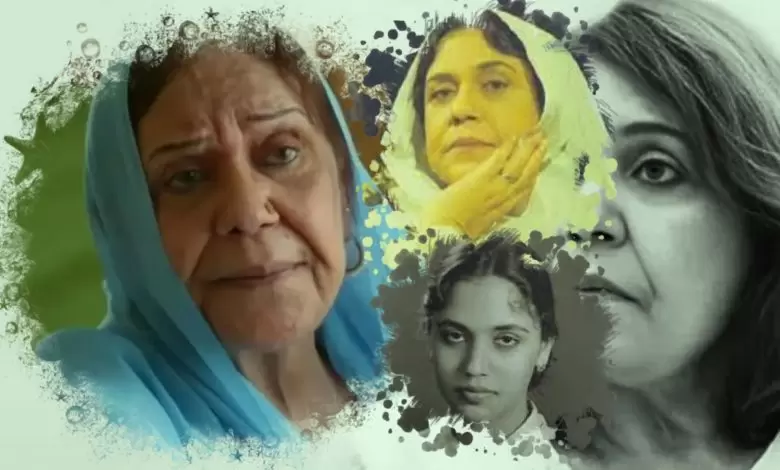
In a heartbreaking turn of events, veteran Pakistani actress Ayesha Khan was found dead in her apartment in Karachi’s Gulistan-e-Jauhar on Friday morning. Living alone, her body was discovered seven days after her death, following complaints from neighbors about a foul odor emanating from her flat. Police broke into the locked apartment to find the beloved artist lifeless, her final chapter closed in painful silence.
A celebrated name in the golden era of Pakistani television, Ayesha Khan's eyes once lit up in front of the camera. She was a leading face in classic Urdu dramas of the 1970s and ’80s, with iconic roles in serials like Afshan, Uroosa, Family 93, Mehndi, Naqab Zan, Bharosa Pyar Tera, and Bisaat-e-Dil. Her passing is more than a personal tragedy, it is a mirror to society’s apathy toward those who once lit up their screens.
How does a nation that so passionately recites its artists’ dialogues and reveres their performances fail to check on them when the applause fades? Where were the friends, family, or neighbors when Ayesha Khan, a woman who gave so much to art, slipped into complete isolation?
Also Read: Iran Rules Out Talks Amid Ongoing Israeli Strikes; China Calls for Immediate Ceasefire
Born on August 22, 1948, in Karachi, Ayesha Khan earned her education at the University of Karachi before stepping into the limelight during PTV’s golden age. Her younger sister, Khalida Riyasat, was also a renowned actress. Together, they shaped the cultural imagination of generations.
Ayesha Khan starred in numerous unforgettable productions such as Shaam Se Pehle, Naqab Zan, Bandhan, Daraarain, Saiban, and Tipu Sultan. She also appeared in films like Raju Ban Gaya Gentleman and Fatima, portraying characters that reflected strength, vulnerability, and emotional depth.
Among her most acclaimed performances:
Khuda Mera Bhi Hai: As the dignified Mah Gul, who defied social norms.
Mann Mayal: A powerful depiction of Jeena, an independent and resilient woman.
Manzil: A portrait of endurance and patience in the face of life’s struggles.
In 2018, Ayesha Khan quietly retired from showbiz after getting married. Her farewell was without fanfare, just as her death was shrouded in silence.
Sadly, her fate echoes that of many once-celebrated Pakistani artists, like Waheed Murad, Talat Hussain, Rashid Dar, Khalid Butt, and Naheed Ansari, who spent their final days in obscurity, battling illness, financial hardship, or sheer loneliness.
It would not be wrong to say we admire the art but often forget the artist. We quote the stories they told but rarely care about their own life stories. As a society, we have grown distant from those who once lived in our living rooms through television screens.
It is time to reflect. Do we only cherish the scripted lives they portrayed, or do we owe them compassion for their real ones?
If we continue to turn a blind eye, another Ayesha Khan, another cherished face, may silently fade away, unnoticed. Let us honor our artists not just in death, but in life. Let us remember them not only in tribute, but with connection.
Ayesha Khan's quiet departure is a wake-up call for our collective conscience. The question is: are we ready to listen?